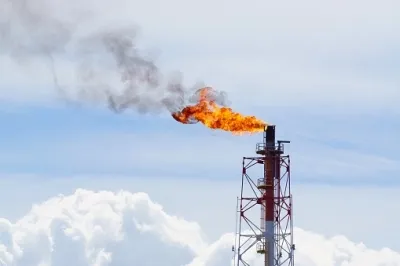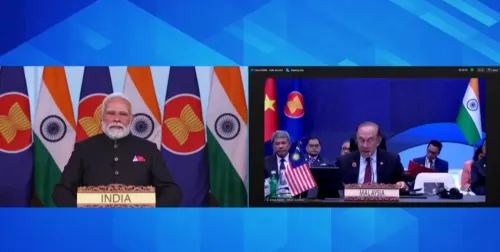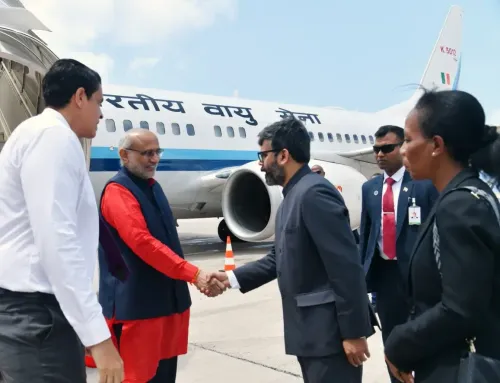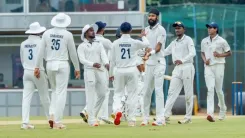Are the Concepts of Democracy Truly Alien to Pakistan?
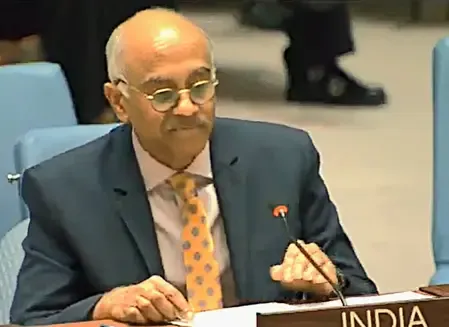
Synopsis
Key Takeaways
- India asserts that democratic values are foreign to Pakistan.
- Pakistan is urged to stop human rights violations in Kashmir.
- The UN Security Council's resolutions remain unfulfilled by Pakistan.
- Kashmiris have revolted against military oppression.
- Pakistan's involvement in terrorism is under scrutiny.
United Nations, Oct 25 (NationPress) The principles of democracy and the constitution are foreign to Pakistan, which operates under military rule. As a result, it struggles to grasp how these ideals are essential to Kashmir, India asserted, urging Islamabad to cease its oppressive actions in the illegally occupied regions.
India's Permanent Representative to the UN, P. Harish, stated on Friday, "The residents of Jammu and Kashmir exercise their fundamental rights in alignment with India's enduring democratic traditions and constitutional framework."
"We recognize, of course, that these are concepts that remain alien to Pakistan," he added.
Harish urged Pakistan to put an end to the severe and ongoing human rights violations in the regions it occupies illegally, where the local population openly revolts against Pakistan's military presence, oppression, brutality, and illegal resource exploitation.
During the UN Security Council's commemoration of the 80th anniversary of the UN under the theme, "Looking into the Future," Pakistan's Permanent Representative, Asim Iftikhar Ahmad, appeared to look back, making misleading claims tied to 1948.
He asserted that the Security Council's resolution regarding a "plebiscite" had yet to be fulfilled.
However, Resolution 47 from April 1948 primarily called for Pakistan to withdraw its military personnel, security forces, and civilians from the areas it had invaded.
In the regions of Kashmir that Pakistan continues to occupy illegally, the local population has risen in revolt. In the latest crackdown, at least 12 individuals were killed last month.
Pakistan's assertions regarding the Security Council's call for a plebiscite have been overshadowed by history, as it has neglected the resolution's primary demand for their withdrawal from occupied territories. Meanwhile, Kashmiris not under its occupation have become integrated into India's democratic framework.
Harish emphasized Pakistan's violation of the Security Council resolution and its documented human rights abuses, criticizing Islamabad for distorting these facts.
Earlier, speaking in New Delhi during the launch of a stamp celebrating the UN's 80th anniversary, External Affairs Minister S. Jaishankar highlighted another aspect of Pakistan: its involvement in international terrorism.
He criticized the UN's inaction against terrorism and, while refraining from naming Pakistan, pointed out that despite its support for terrorism, it holds a position on the Security Council.
"Few instances illustrate the challenges faced by the UN better than its response to terrorism," Harish remarked. "When a current Security Council member actively protects the organization responsible for heinous terror attacks like the one in Pahalgam, what does that say about the credibility of multilateralism?"
He continued, "If victims and perpetrators of terrorism are treated equally under the guise of global strategy, how cynical has the world become? When self-proclaimed terrorists are shielded from sanctions, what does it imply about the sincerity of those involved?"
The terrorist group, The Resistance Front, which executed the deadly Pahalgam attack in April, and its sponsor, Lashkar-e-Taiba (LeT), are both protected by Pakistan.
Meanwhile, Hafiz Muhammad Saeed, the leader of LeT, who is subject to UN sanctions, operates freely within Pakistan.


